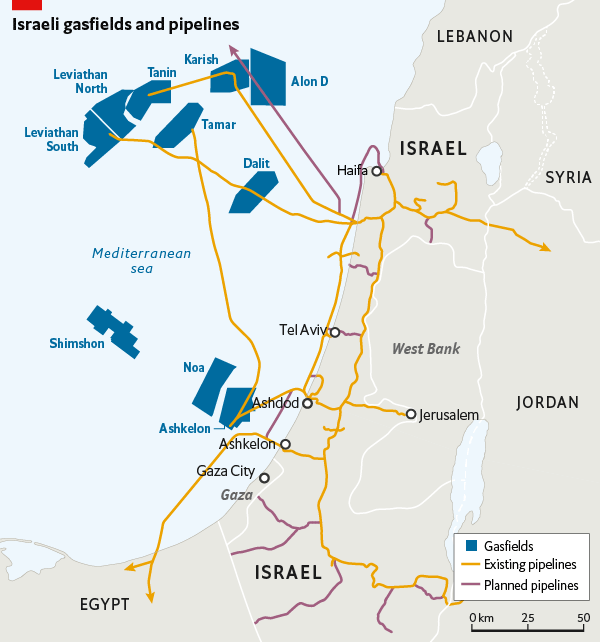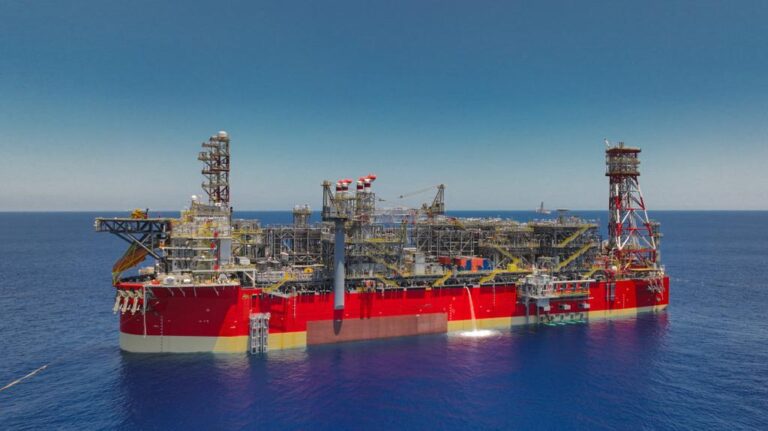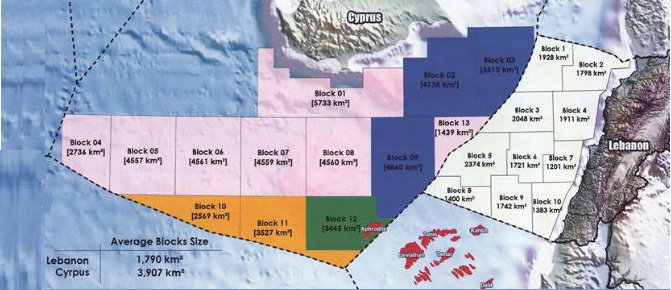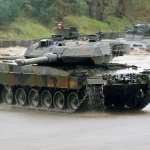“There is still work to be done,” said the American envoy Amos Hochstein, who is responsible for indirect negotiations between Lebanon and Israel on their common maritime border, after a very brief visit of just over two hours to Beirut.
The Energean company, which works for the Jewish State, has announced that it is ready to begin exploitation of Karish “within a few weeks,” he added.
What is the dispute for?
Lebanon and Israel are located in the Levant basin, where numerous large underwater gas fields have been discovered since 2009.

The two States are at odds on the border separating their Exclusive Economic Zones (EEZ), an offshore area that a country can claim for resource extraction.
Over the past 15 years, based on estimates that fields near the Israeli coast could contain 34.5 trillion cubic meters of gas, Israel has proceeded to develop natural gas reserves off its coast, some of which are claimed by Lebanon.
Israel claims that the maritime border between the two countries runs further north than Lebanon claims as its Exclusive Economic Zone.
Line 29 claimed by the Lebanese government grants Beirut 1430 sq km, instead of the 860 sq km of line 23 adopted in 2011.
In those square kilometers in 2013, a gas reserve known as Karish was discovered.
On June 5, Israel deployed the Energean Power, a floating gas extraction and storage vessel in the Karish gas field, triggering a flare-up of tensions between the two countries, which have never reached the peace between them and do not even recognize the land borders.
The dispute between the two nations has been going on for years, and in the last period it has been exacerbated by the presence of natural gas.
Beirut is opposed to the field being exploited until the issue is resolved, while for its part, Israel, which considers Karish part of its waters, would like to start production possibly by the end of the year.
Settling the dispute could make important gas reserves accessible at a time when the Western world is working to free itself from Russian dependence.
This is why Lebanon turned to the United States in asking to mediate in the talks between the two countries.
What does Hezbollah think?
Hezbollah and Israel have been declared enemies since the group was founded on 1985 and Lebanon was under Israeli occupation.
Hezbollah is not only a pro-Iranian, armed Shiite movement, but also a political party that has created a State within a State in Lebanon.
The group immediately opposed any Israeli gas extraction activity in the Karish area, declaring that this action violates the rights of the Lebanese.
Hezbollah has always declared that no mining activity should continue until an agreement on the demarcation of the maritime border can be concluded.
The group is deeply involved in Lebanese affairs of State and certainly needs it for the development of Lebanon’s offshore energy resources. This is why it did not stand in the way of US-mediated indirect talks and said it will agree to whatever the government agrees.
Even clearly the government will not be able to decide contrary to the interests of Hezbollah in substance.
To Hezbollah’s intervention is attributed the Lebanese stiffening in the face of the various proposals for resolutions offered by the Americans in recent months.
So, during the summer there was no lack of acts of force. On July 2, the Israely Army, IDF, successfully intercepted three Hezbollah drones towards the Karish gas drilling platform. The three drones were shot down, although the Israeli military believed they were not armed and did not pose a risk to the country or to the gas field.
In an escalation that has been preparing for months, on last Sunday military activities between the two borders between Israel and Lebanon resumed activities. According to the newspaper “L’Orient le Jour”, the Shiite party withdrew some of its fighters from Syria, in particular from the Deir ez-Zor region, to transfer them to the Bekaa and southern Lebanon, precisely in view of a possible confrontation with Israel.
How will the negotiations go?
Today, most parts of Lebanon have only two hours of electricity a day, and hospitals and hotels are forced to use generators. Lebanon is experiencing one of the deepest economic crises in the country’s history. The agreement could at least partially alleviate the country’s public debt and electricity crisis.
On the other hand, the price to pay for Israel and the Western world in general if the talks fail would be much higher.
Therefore, both sides have all the interest for the dispute to be resolved and the talks to be successful. This is why Israel accepted Lebanon’s request for American mediation.
The return of Amos Hochstein to Beirut had already been expected for several days. The American mediator in charge of the negotiations should have returned with an Israeli response to the latest Lebanese proposal to resolve this dispute and after a meeting with France’s Total.
According to “Reuters”, Lebanon has proposed to Hochstein a compromise for an area that includes another gas reserve, Qana, renouncing all claims on Karish, but at the same time requesting that the works on the field cease until the agreement is not reached.
According to “Orient le Jour”, Israel is ready to cede the entire alleged hydrocarbon field of Cana to Lebanon. In return, the Jewish State is demanding financial compensation, which Beirut has refused to give.
One of the consortium companies that had won the first series of offshore hydrocarbon exploration and exploitation licenses launched by Lebanon, could act as an intermediary in this matter by paying itself the compensation for the Israeli side.
The consortium now includes the French Total and the Italian Eni, after the withdrawal of the Russian company Novatek from the group which cited “economic and financial” reasons, in addition to “political risks”.
This is probably the reason why Amos Hochstein traveled to Paris, before arriving in the region, where he met with representatives of the oil and gas company TotalEnergies.
If so, it would mean that Lebanon has been given the green light to start exploring its EEZ.
In the event of no agreement, everyone fears a resumption of escalation and the hypotheses are various. But almost most of the experts think that in any case even in this case it will most likely be sporadic attacks against very specific targets, using drones or launch missiles.
Hezbollah fears that Israel will wait until the end of their legislative elections before finalizing the deal with Lebanon.
In any case, it must also be said that the resolution of the dispute and the discovery of new gas fields offers opportunities for economic revival, new sources of supply for Europe in search of cutting dependence ties with Moscow, but would also lead to increase in geopolitical tensions between Turkey, Greece, Cyprus, Syria, Israel and Lebanon.
Post Author
Author
-

Researcher on International Relations Middle East and Balkans
View all posts
CSSII- Centro Interdipartimentale di Studi Strategici, Internazionali e Imprenditoriali,
Università di Firenze, Italy, Albania





